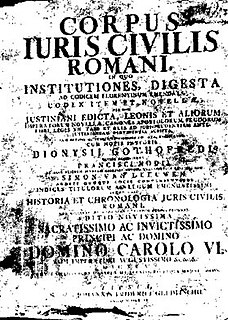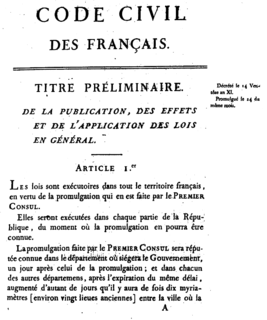
In law, common law is the body of law created by judges and similar quasi-judicial tribunals by virtue of being stated in written opinions. The defining characteristic of “common law” is that it arises as precedent. In cases where the parties disagree on what the law is, a common law court looks to past precedential decisions of relevant courts, and synthesizes the principles of those past cases as applicable to the current facts. If a similar dispute has been resolved in the past, the court is usually bound to follow the reasoning used in the prior decision. If, however, the court finds that the current dispute is fundamentally distinct from all previous cases, and legislative statutes are either silent or ambiguous on the question, judges have the authority and duty to resolve the issue. The court states an opinion that gives reasons for the decision, and those reasons agglomerate with past decisions as precedent to bind future judges and litigants. Common law, as the body of law made by judges, stands in contrast to and on equal footing with statutes which are adopted through the legislative process, and regulations which are promulgated by the executive branch. Stare decisis, the principle that cases should be decided according to consistent principled rules so that similar facts will yield similar results, lies at the heart of all common law systems.

Jurisprudence, or legal theory, is the theoretical study of law. Scholars of jurisprudence seek to explain the nature of law in its most general form and provide a deeper understanding of legal reasoning, legal systems, legal institutions, and the role of law in society.

Philosophy of law is a branch of philosophy that examines the nature of law and law's relationship to other systems of norms, especially ethics and political philosophy. It asks questions like "What is law?", "What are the criteria for legal validity?", and "What is the relationship between law and morality?" Philosophy of law and jurisprudence are often used interchangeably, though jurisprudence sometimes encompasses forms of reasoning that fit into economics or sociology.

Roman law is the legal system of ancient Rome, including the legal developments spanning over a thousand years of jurisprudence, from the Twelve Tables, to the Corpus Juris Civilis ordered by Eastern Roman Emperor Justinian I. Roman law forms the basic framework for civil law, the most widely used legal system today, and the terms are sometimes used synonymously. The historical importance of Roman law is reflected by the continued use of Latin legal terminology in many legal systems influenced by it, including common law.

The Corpus JurisCivilis is the modern name for a collection of fundamental works in jurisprudence, issued from 529 to 534 by order of Justinian I, Byzantine Emperor. It is also sometimes referred to metonymically after one of its parts, the Code of Justinian.

Friedrich Carl von Savigny was a German jurist and historian.
Religious law includes ethical and moral codes taught by religious traditions. Different religious systems hold sacred law in a greater or lesser degree of importance to their belief systems, with some being explicitly antinomian whereas others are nomistic or "legalistic" in nature. In particular, religions such as Judaism, Islam and the Baháʼí Faith teach the need for revealed positive law for both state and society, whereas other religions such as Christianity generally reject the idea that this is necessary or desirable and instead emphasise the eternal moral precepts of divine law over the civil, ceremonial or judicial aspects, which may have been annulled as in theologies of grace over law.

A civil code is a codification of private law relating to property, family, and obligations.
In law, codification is the process of collecting and restating the law of a jurisdiction in certain areas, usually by subject, forming a legal code, i.e. a codex (book) of law.
Legal history or the history of law is the study of how law has evolved and why it has changed. Legal history is closely connected to the development of civilisations and operates in the wider context of social history. Certain jurists and historians of legal process have seen legal history as the recording of the evolution of laws and the technical explanation of how these laws have evolved with the view of better understanding the origins of various legal concepts; some consider legal history a branch of intellectual history. Twentieth-century historians viewed legal history in a more contextualised manner - more in line with the thinking of social historians. They have looked at legal institutions as complex systems of rules, players and symbols and have seen these elements interact with society to change, adapt, resist or promote certain aspects of civil society. Such legal historians have tended to analyse case histories from the parameters of social-science inquiry, using statistical methods, analysing class distinctions among litigants, petitioners and other players in various legal processes. By analysing case outcomes, transaction costs, and numbers of settled cases, they have begun an analysis of legal institutions, practices, procedures and briefs that gives a more complex picture of law and society than the study of jurisprudence, case law and civil codes can achieve.
Jus commune or ius commune is Latin for "common law" in certain jurisdictions. It is often used by civil law jurists to refer to those aspects of the civil law system's invariant legal principles, sometimes called "the law of the land" in English law. While the ius commune was a secure point of reference in continental European legal systems, in England it was not a point of reference at all. The phrase "the common law of the civil law systems" means those underlying laws that create a distinct legal system and are common to all its elements.
Legal realism is a naturalistic approach to law. It is the view that jurisprudence should emulate the methods of natural science, i.e., rely on empirical evidence. Hypotheses must be tested against observations of the world.
The Bürgerliches Gesetzbuch, abbreviated BGB, is the civil code of Germany. In development since 1881, it became effective on 1 January 1900, and was considered a massive and groundbreaking project.

In political science, legitimacy is the right and acceptance of an authority, usually a governing law or a regime. Whereas authority denotes a specific position in an established government, the term legitimacy denotes a system of government—wherein government denotes "sphere of influence". An authority viewed as legitimate often has the right and justification to exercise power. Political legitimacy is considered a basic condition for governing, without which a government will suffer legislative deadlock(s) and collapse. In political systems where this is not the case, unpopular régimes survive because they are considered legitimate by a small, influential élite. In Chinese political philosophy, since the historical period of the Zhou Dynasty, the political legitimacy of a ruler and government was derived from the Mandate of Heaven, and unjust rulers who lost said mandate therefore lost the right to rule the people.
Civil law is a legal system originating in mainland Europe and adopted in much of the world. The civil law system is intellectualized within the framework of Roman law, and with core principles codified into a referable system, which serves as the primary source of law. The civil law system is often contrasted with the common law system, which originated in medieval England, whose intellectual framework historically came from uncodified judge-made case law, and gives precedential authority to prior court decisions.

A code of law, also called a law code or legal code, is a type of legislation that purports to exhaustively cover a complete system of laws or a particular area of law as it existed at the time the code was enacted, by a process of codification. Though the process and motivations for codification are similar in different common law and civil law systems, their usage is different.
The canon law of the Catholic Church is the system of laws and legal principles made and enforced by the hierarchical authorities of the Catholic Church to regulate its external organization and government and to order and direct the activities of Catholics toward the mission of the Church. It was the first modern Western legal system and is the oldest continuously functioning legal system in the West, while the unique traditions of Eastern Catholic canon law govern the 23 Eastern Catholic particular churches sui iuris.

Law is a system of rules created and enforced through social or governmental institutions to regulate behavior, with its precise definition a matter of longstanding debate. It has been variously described as a science and the art of justice. State-enforced laws can be made by a group legislature or by a single legislator, resulting in statutes; by the executive through decrees and regulations; or established by judges through precedent, usually in common law jurisdictions. Private individuals may create legally binding contracts, including arbitration agreements that adopt alternative ways of resolving disputes to standard court litigation. The creation of laws themselves may be influenced by a constitution, written or tacit, and the rights encoded therein. The law shapes politics, economics, history and society in various ways and serves as a mediator of relations between people.
Medieval Roman law is the continuation and development of ancient Roman law that developed in the European Late Middle Ages. Based on the ancient text of Roman law, Corpus iuris civilis, it added many new concepts, and formed the basis of the later civil law systems that prevail in the vast majority of countries. Some exceptions are, for example, common law countries of the English-speaking world

French legal system or Institutional System or Romance System is an institutional system of organization of civil law. The system is in force in France, Belgium, Spain, Albania, Romania and Latin America.










